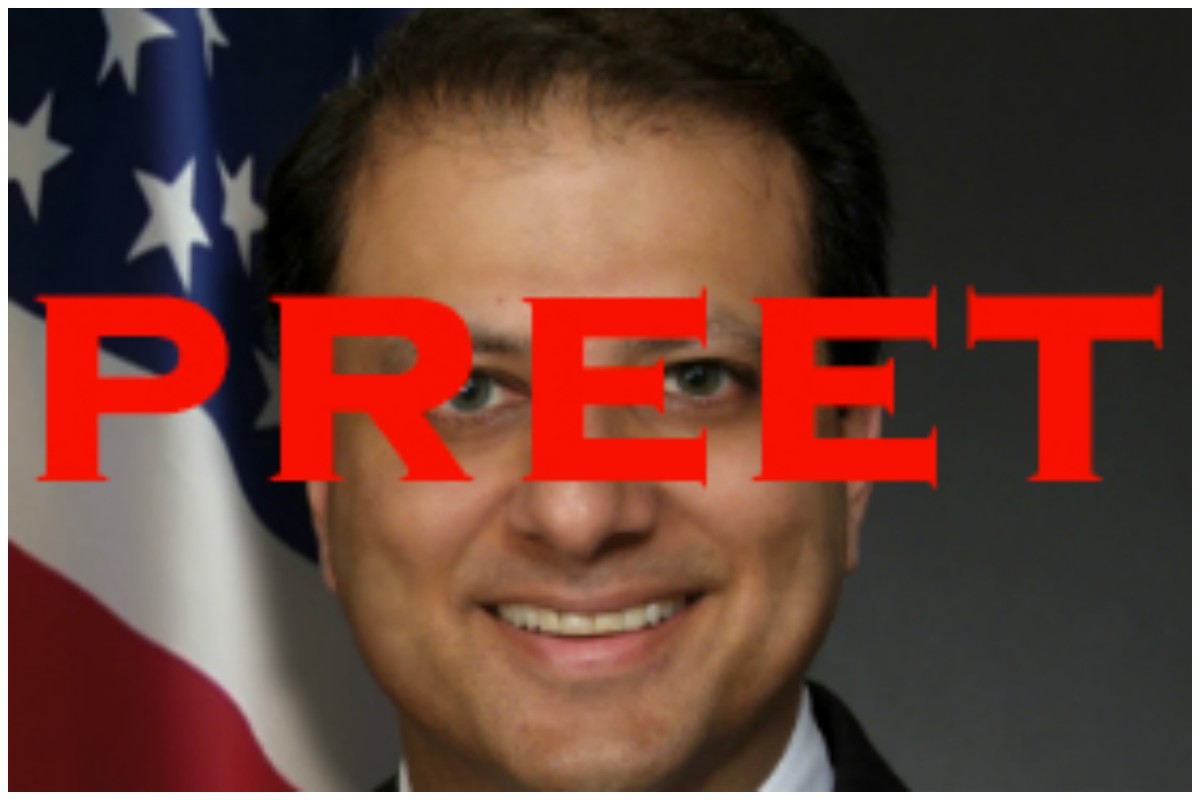On Saturday, the bill for Donald Trump’s habit of skirting Senate approval by appointing his flavor of the week as Acting Undersecretary For Vague MAGA Priorities finally came due. U.S. District Judge Nicholas Garaufis ruled that Acting Secretary of Homeland Security Chad Wolf was unlawfully appointed. And because Wolf was never legitimately in charge of DHS, his attempts to curtail the Deferred Action for Child Arrivals program are a legal nullity.
Sad vuvuzela womp womp.
Presumably, the incoming Biden administration will make every effort to restore the program which allows undocumented persons brought here as children to work and travel without risk of deportation. But since this is a legal blog, it’s worth going into exactly how this decision came about.
Spoiler Alert: It wasn’t because of excellent lawyering by DHS.
As Judge Garaufis noted, Trump has admitted using his ability to nominate officials temporarily to skirt the legal requirement for Senate confirmation of executive branch appointees, saying he was “in no hurry” to name permanent replacements for departed cabinet officials because “I have ‘acting.’ And my actings are doing really great. I sort of like ‘acting.’ It gives me more flexibility.”
As part of this “flexibility,” the administration relied on agency heads to modify the order of succession in their departments to suit the president’s whims. And so it was on April 7, 2019, when DHS Secretary Kirstjen Nielsen resigned her office at the president’s request. Trump immediately tweeted that Kevin McAleenan, then Commissioner of U.S. Customs and Border Patrol, would take over as acting secretary.
Except — plot twist! — there was an order of succession at DHS, and McAleenan wasn’t next in line. So Neilsen quickly un-resigned, signed a memo purporting to change the delegation rankings, and then quit again on April 10.
It’s a pattern familiar to anyone watching the Trump administration for the past four years. Step 1: You’re fired. Step 2: Sign a document so whichever odious cretin has captured the president’s wandering eye can replace you. Step 3: Mean tweets.
The problem was that there were two parallel orders of succession at DHS: one that governed in case of the Secretary’s death, resignation, or inability to perform the functions of office, and one that would become operative in the event of a disaster or catastrophic emergency. And Nielsen signed a document modifying the second one. Whoopsie!
On November 8, 2019, McAleenan signed another order purporting to modify the DHS’s order of succession making Chad Wolf the second-in-line. Then on November 13, McAleenan got the boot after taking heavy fire from Trump’s anti-immigrant allies for his failure to support ICE raids on families who had no previous involvement with law enforcement.
Multiple plaintiffs sued on the grounds that McAleenan never had legal authority and thus had no ability to delegate it to Wolf. The parties in the instant case challenged Wolf’s authority to cut off new DACA applications, bar foreign travel by participants, and require annual renewal of permits, which he did in a July 28, 2020 memo after the Supreme Court blocked the Trump administration’s effort to cancel the program in its entirety for violating the Administrative Procedures Act.
The Government Accountability Office issued a report on August 14, 2020 validating the plaintiffs’ position that McAleenan and Wolf had been unlawfully appointed, to which DHS responded in a bonkers letter accusing the GAO of partisanship in the lead up to the election.
But Judge Garaufis agreed entirely with the GAO’s analysis, and was unpersuaded by testimony from DHS counsel that what Neilsen meant to say was that she modified all the agency’s succession orders.
“Based on the plain text of the operative order of succession, neither Mr. McAleenan nor, in turn, Mr. Wolf, possessed statutory authority to serve as acting secretary,” the court held. “Therefore, the Wolf Memorandum was not an exercise of legal authority.”
Although DHS heaped scorn on the GAO and insisted that the delegation was totally kosher because Nielsen had sworn in McAleenan herself, the agency did take some steps to repair the damage back in the fall. On September 10, 2020, FEMA Administrator Peter Gaynor purported to exercise “any authority vested in me as Acting Secretary of Homeland Security” to create a new order of succession retroactively elevating Wolf, and Wolf himself issued a “Ratification of Actions Taken” on September 18 to bless all his prior orders.
But Judge Garaufis was unimpressed. “[A]lthough Litigants can make arguments in the alternative, the court is not aware of any authority that would allow a government official to take administrative action in the alternative,” he observed dryly, noting later that, “Even if Administrator Gaynor should be Acting Secretary, DHS cannot recognize his authority only for the sham purpose of abdicating his authority to DHS’s preferred choice, and only in the alternative.”
There’s also some choice throat clearing in a footnote about the reliability of the representations the government made to the court about Gaynor’s attempted delegation:
Because the court finds that the Gaynor Order had no legal effect, it does not find it significant that Government is now confused as to whether the order was issued after Mr. Wolf was nominated to be Secretary on September 10, 2020 — as it originally claimed that — or before. (See Defs.’ Letter of November 13, 2020 (Dkt. 341).) The court wishes the Government well in trying to find its way out of this self-made thicket.
Woof.
The practical effect of this decision is probably minimal. The plaintiffs won class certification, but the incoming Biden administration will likely resume taking applications for DACA and allowing recipients to travel without losing eligibility, mooting the case. But it is a fitting coda to four years of deliberate flouting of the Senate confirmation process that the Trump administration’s attempt to gut protections for immigrant kids died because these people couldn’t get it together to revoke the law properly, and then their efforts to kneecap it failed because there was no one in charge at DHS.
Saved by lousy drafting!
Memorandum & Order [Batalla v. Wolf, No. 1:16-cv-04756-NGG-VMS (E.D.N.Y. Nov. 14, 2020)]
Elizabeth Dye lives in Baltimore where she writes about law and politics.
 Jordan Rothman is a partner of The Rothman Law Firm, a full-service New York and New Jersey law firm. He is also the founder of Student Debt Diaries, a website discussing how he paid off his student loans. You can reach Jordan through email at jordan@rothmanlawyer.com.
Jordan Rothman is a partner of The Rothman Law Firm, a full-service New York and New Jersey law firm. He is also the founder of Student Debt Diaries, a website discussing how he paid off his student loans. You can reach Jordan through email at jordan@rothmanlawyer.com.












 Robert Ambrogi
Robert Ambrogi


